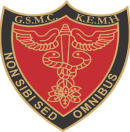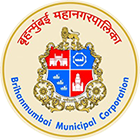
KING EDWARD MEMORIAL HOSPITAL
SETH GORDHANDAS SUNDERDAS MEDICAL COLLEGE
बृहन्मुंबई महानगरपालिका रुग्णालय


KING EDWARD MEMORIAL HOSPITAL
SETH GORDHANDAS SUNDERDAS MEDICAL COLLEGE
बृहन्मुंबई महानगरपालिका रुग्णालय


Transfusion Medicine is a multidisciplinary area concerned with use of blood and blood components in the treatment of human diseases. Blood transfusion constitutes an important part of various treatment protocols. It is a life saving treatment in cases of massive blood loss, patients undergoing major surgeries, aplastic anemia, and leukemia undergoing chemotherapy and also in genetic conditions like thalassaemia major which are transfusion dependent. It is one of the most important emergency service departments which also plays important role in disaster management.
The Department of Transfusion Medicine ( originally The Bombay Municipal Blood Centre – Shantilal Mathuradas Blood Centre) of Seth G.S. Medical College and K.E.M. Hospital came into existence on 1st January 2009, ( First Medical College to start Department of Transfusion Medicine in the State, among all the Medical Colleges under DMER, Maharashtra ) with the main objective of starting Postgraduate course in Transfusion Medicine, and also providing quality medical care to patients by dispensing safe blood and blood components , performing therapeutic procedures, advanced apheresis procedures , keeping pace with the recent developments and advances in Transfusion Medicine and discharging its responsibility to voluntary blood donors. The postgraduate course (M.D. Transfusion Medicine) started in the year 2010. This is the First Medical College among all the State Government and Corporation Medical Colleges in Maharashtra to start MD Transfusion Medicine Course with an annual intake of 2 students per year since July 2010. It is MCI/NMC Recognized Course. At the time of establishment of the department following were the faculty :
The Department of Transfusion Medicine ( originally The Bombay Municipal Blood Centre – Shantilal Mathuradas Blood Centre) of Seth G.S. Medical College and K.E.M. Hospital came into existence on 1st January 2009, ( First Medical College to start Department of Transfusion Medicine in the State, among all the Medical Colleges under DMER, Maharashtra ) with the main objective of starting Postgraduate course in Transfusion Medicine, and also providing quality medical care to patients by dispensing safe blood and blood components , performing therapeutic procedures, advanced apheresis procedures , keeping pace with the recent developments and advances in Transfusion Medicine and discharging its responsibility to voluntary blood donors. The postgraduate course (M.D. Transfusion Medicine) started in the year 2010. This is the First Medical College among all the State Government and Corporation Medical Colleges in Maharashtra to start MD Transfusion Medicine Course with an annual intake of 2 students per year since July 2010. It is MCI/NMC Recognized Course. At the time of establishment of the department following were the faculty :
Dr Jayashree Sharma: Professor and Head
Dr Charusmita Dr Modi: Associate Professor
Dr. Swarupa Bhagwat: Assistant Professor
Then 2 more Faculty joined in the year 2016 and 2023
So now the Faculty position is :
Dr Jayashree Sharma : Professor and Head
Dr Charusmita Modi : Associate Professor
Dr Swarupa Bhagwat : Associate Professor
Dr Parag Fulzele : Assistant Professor
Dr Darshan Adulkar : Assistant Professor
This has widened the horizons of “blood banking” from a mere support service to an academic department keeping pace with the ever-expanding field of transfusion medicine.
Our blood bank is the largest blood bank in Mumbai and one of the largest blood centres in Asia. More than 36,000 units of blood are collected annually and separated into components: Red Cell Concentrates, Plasma, Platelet Concentrates and Cryoprecipitate. It is associated with the National Plasma Fractionation Centre (NPFC), an autonomous institute located in K.E.M. Hospital, which manufactures plasma products like albumin, immunoglobulins and coagulation factor concentrates.
Dr. Jayashree Sharma : Professor and Head
Dr. Charusmita Modi : Associate Professor
Dr. Swarupa Bhagwat : Associate Professor
Dr Darshan Adulkar : Assistant Professor
Dr Parag Fulzele : Assistant Professor
Striving to be exemplary in the field of Transfusion Medicine by:-
We shall be the most efficient Department of Transfusion Medicine in India, operating as a centre of excellent services adhering to the highest standards of Good Manufacturing Practices, serving the needy patients and the common man.
We, at Seth G.S. Medical College and K.E.M. Hospital, Parel, Mumbai are committed to provide safe, appropriate and good quality blood and its components to all patients as per Quality Standards and the latest developments in the field of Transfusion Medicine, ensuring availability to any patient in need of transfusion. Our aim is also to ensure and promote rational use of blood components and giving training to all the clinicians regarding the same. Continuous education and training to blood bank staff and resident doctors shall be given to keep them updated about the latest developments in the field of Transfusion Medicine.
The Department of Transfusion Medicine is committed to provide Quality Medical Care to all its patients. This can be achieved by:
We serve all patients irrespective of caste, religion, gender and age and fulfill his/her requirements of blood and blood components including apheresis platelets and apheresis granulocytes during all times including emergencies and in the event of any disaster whatsoever. The scope of Quality Management System applies to all the activities of the Department including blood collection including blood collection, public relation and community awareness programmes, testing, processing into components, issue, quality assurance, human resource development and equipments.
The Department of Transfusion Medicine ( originally The Bombay Municipal Blood Centre – Shantilal Mathuradas Blood Centre) of Seth G.S. Medical College and K.E.M. Hospital came into existence on 1st January 2009, with the main objective of starting Postgraduate course in Transfusion Medicine, and also providing quality medical care to patients by dispensing safe blood and blood components , performing therapeutic procedures, advanced apheresis procedures , keeping pace with the recent developments and advances in Transfusion Medicine and discharging its responsibility to voluntary blood donors. The postgraduate course (M.D. Transfusion Medicine) started in the year 2010. At the time of establishment of the department following were the faculty :
This has widened the horizons of “blood banking” from a mere support service to an academic department keeping pace with the ever-expanding field of transfusion medicine.
Our blood bank is the largest blood bank in Mumbai and one of the largest blood centres in Asia. More than 36,000 units of blood are collected annually and separated into components: Red Cell Concentrates, Plasma, Platelet Concentrates and Cryoprecipitate. It is associated with the National Plasma Fractionation Centre (NPFC), an autonomous institute located in K.E.M. Hospital, which manufactures plasma products like albumin, immunoglobulins and coagulation factor concentrates.
The Blood Bank of K.E.M. Hospital is licensed by Drug Controller General of India and the Food and Drug Administration (FDA) , Maharashtra. It is also a member of the State Blood Transfusion Council (SBTC) and Federation of Bombay Blood Banks (FBBB).
It is also accredited by National Accreditation Board for Hospitals (NABH), Quality Council of India, New Delhi.
Blood is a precious therapeutic modality since it is obtained from human source. It cannot be manufactured in factories. A human being ONLY can donate blood for another human being. Besides being a commitment towards society, blood donation gives a feeling of immense satisfaction to the donor. Voluntary blood donation motivated solely by humanitarian considerations is undoubtedly the safest and most effective way of providing blood of assured quality.
The donated blood unit is separated into components: Red Cell Concentrate, Platelet Concentrate, Fresh Frozen Plasma (FFP) and cryoprecipitate. These blood components are issued to 4 different patients as per the clinical needs. Thus, a single unit of blood can save lives of FOUR patients.
“Plateletpheresis” is a special procedure in which the donor donates only platelets. These platelets are lifesaving for patients who suffer from bleeding due to monsoon related illnesses like malaria and dengue. They are a boon for patients with blood cancers and aplastic anemia who have low platelets. Patients undergoing heart surgery also benefit from these platelet products. Platelet donation facility is available in the Department of Transfusion Medicine for the benefit of patients who are admitted in KEM Hospital.
Being a tertiary care public hospital, with superspeciality facilities, patients from all over India come to KEM Hospital for treatment of various diseases many of which require blood. The requirement of blood and blood components is about 250 units per day at K.E.M. Hospital.
WE APPEAL TO THE SOCIETY TO COME FORWARD AND DONATE BLOOD AND PLATELETS FOR THE NEEDY PATIENTS AND SAVE THEIR LIVES.
For blood and platelet donation, Contact: 022-24135189, 022-24107421
If you are between 18 and 65 years of age, weighing more than 45 kg and are healthy, you can donate blood. For platelet donation, the minimum weight should be 55 kg. You should have eaten a non-oily healthy breakfast/ meal within 4 hours before coming for blood donation. Additionally, the doctors in the blood bank will explain to you the benefits of as well as the eligibility criteria for blood donation.
Under the supervision of the Faculty, technical supervisors, technicians, medical social workers, staff nurses, clerical staff and support staff are working in various sections of the department.
The Department collects blood from voluntary blood donors . More than 150 blood donation camps are conducted annually with various voluntary organizations, colleges, corporate offices and many more. Besides this, blood is also collected from blood donors who come to the blood bank for donation. The annual blood collection at the blood bank is 36,000 units
The Blood Bank crossmatches and issues blood and components continuously, all the twenty-four hours, thus making it available during all the emergency hours.
These platelets (also called Single Donor Platelets or SDP) are life saving for patients with haematological disorders, monsoon related illnesses and patients of cardiac surgery.
One of the prime objectives of the department is to provide didactic and practical training in all aspects of transfusion and transplantation technology so as to create well-trained manpower in the field who could operate a well-organized blood transfusion services in various medical colleges and hospitals in the country.
M.D. (Transfusion Medicine):
This academic program provides training in all aspects of transfusion medicine including blood center operation, patient transfusion service, donor and therapeutic apheresis, thalassaemia and haemophilia management, viral screening and immunohematology. The students receive extensive training in running a large hospital- based transfusion service (presently managing transfusion services of 2200 bedded K.E.M. Hospital)
During training, the students work as Junior Residents rotating through different divisions of the department such as blood donor area, blood grouping and crossmatching, TTI screening laboratory, blood component preparation area, immunohematology laboratory, , apheresis, Quality Control Laboratory, outdoor blood donation drives etc. In addition, the students are posted in allied departments like National Institute of Immunohematology, Clinical hematology, anesthesia, pathology, microbiology, BMT Unit in ACTREC
Regular extensive teaching activities are conducted in the Department.
Every week journal clubs, case presentations, seminars, hemotherapy case discussions are presented by the postgraduate students. Interactive sessions and lectures are taken by the faculty. Practical assignments are also given to the students. Formative assessments are conducted regularly every 6 months for the postgraduate students.
Dr. Geeta Paranjape, Transfusion Medicine Consultant from Carter BloodCare, Texas, USA delivered lectures on Transfusion Medicine topics as a visiting faculty to the Department in the year 2009.
The students are also involved in conducting regular audits, quality control procedures and fulfilment of accreditation requirements of the department.
Students are encouraged and motivated to present papers and posters and participate in quiz competitions in various conferences.
The department is also involved in teaching the M.B.B.S. students, students pursuing postgraduation (M.D. /M.S. etc.), DMLT, BPMT, nursing and various trainees and observers from different institutions.
The department is well –equipped to manage disasters; natural (floods resulting in leptospirosis, dengue and malaria etc., earthquake victims) or man-made (bomb-blast and terrorist attack victims).